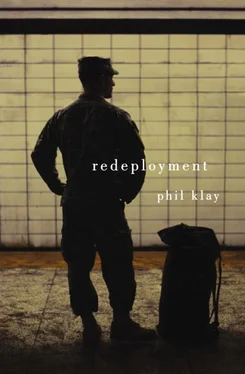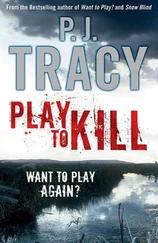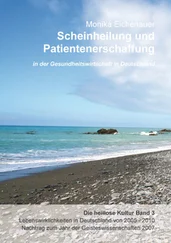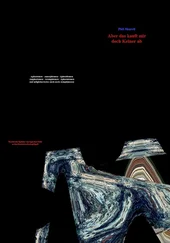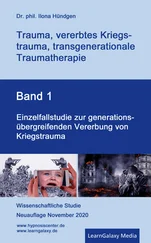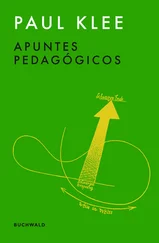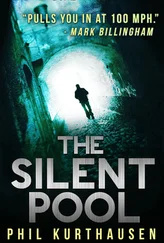That’s new information for me. Not an image I needed. I look through the window of the bar to where Jenks and Sarah are talking. If that IED had hit my vehicle, maybe I’d be in there, talking to Sarah about how all the support I’d got in my recovery had given me a newfound respect for life and love and friendship. And Sarah’d be bored and drilling me to find out how long it was before I could take a shit on my own.
“Artists,” I say, putting all the contempt I can into the word. “I bet they’ll find what happened to him interesting . Oh, so interesting . What fun.”
“This isn’t for fun,” she says. “Fun is video games. Or movies and TV.”
“Or blow jobs and strip clubs. An eight ball of coke, I bet, and a shot of heroin. I wouldn’t know.”
We smoke for a bit, with Jessie looking at me through those soft brown eyes of hers.
“What’s the point of a play?” I say.
“What do you mean?”
“It’s not fun, so what is it?”
Jessie taps her cigarette and a dusting of ash floats down to the ground.
“My dad was in Vietnam,” she says. “My granddad, Korea. But when my dad went in, he didn’t think of the guys stuck in the Frozen Chosin after that asshole MacArthur thought it’d be a good idea to go rogue and poke China with a stick. My dad thought—flag raising at Iwo Jima. D-Day and Audie Murphy. And when I went in—”
“ Platoon and Full Metal Jacket .”
“Yeah. Definitely not my dad in an admin shop.”
“I bet more Marines have joined the Corps because of Full Metal Jacket than because of any fucking recruiting commercial.”
“And that’s an antiwar film.”
“Nothing’s an antiwar film,” I say. “There’s no such thing.”
“Growing up,” Jessie says, “Sarah spent a lot of time at our house, and she still spends some holidays with us. Her family is a mess. And last Thanksgiving we were talking with my grandpa about how nobody remembers Korea, and he said the only way to do it right wasn’t to do a film about the war. Do a film about a kid, growing up. About the girl he falls in love with and breaks his heart and how he joins the Army after World War Two. Then he starts a family and his first kid is born and it teaches him what it means to value life and to have something to live for and how to care for other people. And then Korea happens and he’s sent over there and he’s excited and scared and he wonders if he’ll be courageous and he’s kind of proud and then in the last sixty seconds of the film they put them in boats to go to Inchon and he’s shot in the water and drowns in three feet of surf and the movie doesn’t even give him a close-up, it just ends. That’d be a war film.”
“So, what? That’s the Jenks story? Getting blown up first thing?”
“And then fifty-four surgeries. Make the war the least little thing.”
“Jenks isn’t telling Sarah about growing up and the girl who broke his heart,” I say. “And even if he were, she wouldn’t give a shit.”
Jessie grounds out her cigarette. Mine’s burning down to the filter, but I keep it in my hand, squeezed between the tips of my fingers.
“Want to teach people about war?” I say, tossing the cigarette butt down right as it starts to burn my fingers. “Start shooting motherfuckers. Set bombs in the streets. Get some retarded kids to walk into crowds and blow themselves up. Snipe the NYPD.”
“I don’t want to teach people anything,” she says.
“Or maybe have them fix potholes for seven months. That’d teach them. Shit. There’s the title for your play— Fixin’ Potholes with Wilson and Jenks . The people’ll come by the fucking thousands.”
Jessie looks through the window of the bar. “I thought it might be good for him,” she says, “to tell his story to a civilian who’d really listen.”
I think about lighting another cigarette, but I’ve already left Jenks too long.
“You think we should get out of Afghanistan?” I say.
Jessie laughs. “You know me,” she says. “I’d like a national draft. Do it serious.”
We both start laughing. Then we head back inside. Jenks looks okay, and he waves to me as I enter.
“Hey,” Sarah says before I can sit back down, “Jenks has been telling me you and him are like the same person.”
“I don’t have Jenks’ style,” I say. But that’s not enough, so I add, “He’s who I should have been.”
Sarah gives a polite smile. “So what was he like, when you first met him?”
He was like me, I think. But that’s not what I tell her. “He was a bit of an asshole,” I say, and I smile at Jenks, who stares back with one of those looks I can’t interpret. “To be perfectly honest, he was a worthless piece of shit. No subject for a play, that’s for sure.” I smile. “Good thing he caught on fire, right?”
UNLESS IT’S A SUCKING CHEST WOUND
When the callwakes me and I see the name “Kevin Boylan” glowing in the middle of my phone, I don’t want to answer. I’m still in that half-dream state, and I’ve got this sense that if I pick up it won’t be Boylan on the other end of the line, but Vockler, which is impossible because Vockler is dead. And when I do pick up and hear Boylan’s voice telling me he’s coming into town, it throws me even further. With a guy like Kevin Boylan, captain in the USMC, it’s not just an old friend calling. It’s my old gods.
“I’m coming to New York to get blacked the fuck out,” he slurs into the phone. “Prepare yourself.”
I should mention that Boylan has a Bronze Star with a combat distinguishing device for valor. My old gods have their idiosyncrasies.
“When?” I say.
“All I know is I’m coming,” Boylan proclaims. “I just got back.”
He means from Afghanistan.
“I just got a job offer,” I say.
“Sweet!” he says. “How much they gonna pay?”
Not the sort of question I’m expecting, but it’s Boylan, so I answer. “A hundred and sixty thousand dollars,” I say. “Plus bonuses.” Before he called, I’d been depressed about the job. As soon as I name the figure, though, I’m suddenly delirious, saying it, but also feeling like a schmuck because anybody with an Internet connection can find out exactly how much Boylan—an O3 with no dependents and six years in—is making. Hint: Less.
“Dude!” he says. And I’m smiling, because it’s a big deal to him and because my fellow law students at NYU couldn’t give two shits. Most of them are heading to the same sorts of firms, most of them knowing how much they’ll hate it because they’ve already done the summer associate thing.
There’s a pause and then he says, “One hundred sixty… whoa. I guess you made the right choice getting out, huh?” And there it is—the least hint of approval from a real Marine and I’m swelling with pride. Though I’m not even sure he actually approves. There was a German zoologist, Jakob von Uexküll, who claimed a tick would try to feed off any liquid at the temperature of mammalian blood. Law school has left me starving, and I’ll take what I’m offered.
I ask Boylan how he’s been and he tells me, “Afghanistan’s not Iraq, dude,” which makes sense but probably needed to be said, because Iraq’s what I’m thinking—the sound of his voice sending me nostalgic, as if I’m missing Iraq. I’m not. What I’m missing is the idea of Iraq all my civilian friends imagine when they say the word, an Iraq filled with honor and violence, an Iraq I can’t help feeling I should have experienced but didn’t through my own stupid fault, because I went for an MOS that wouldn’t put me in harm’s way. My Iraq was a stack of papers. Excel spreadsheets. A window full of sandbags behind a cheap desk.
Читать дальше
